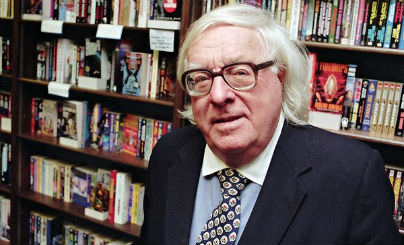Ray Bradbury: Enemy of the State
Remembering the late science fiction writer
 Ray Bradbury won’t “live forever,” as he wished, but he may well live on as the most-read critic of the state in America’s public schools. It was in public school that I first encountered Bradbury’s magnum opus, Fahrenheit 451, which is required reading in the government schools he would have shuttered.
Ray Bradbury won’t “live forever,” as he wished, but he may well live on as the most-read critic of the state in America’s public schools. It was in public school that I first encountered Bradbury’s magnum opus, Fahrenheit 451, which is required reading in the government schools he would have shuttered.
Bradbury, who died this week at the age of 91, was a man of the right, a detail sadly airbrushed out of most obituaries this week. Like the best science fiction writers, he imagined worlds and realms outside the grasp of government, where the focus was always on the people that populated them, not on the gizmos in their pockets.
Libertarians can easily see one of their own in the non-comformist nonagenarian, who, despite moving to Los Angeles in the 1930s, never bothered to learn how to drive. A consummate autodidact, he also never went to college. And good thing too! He hated affirmative action, condemned “all this political correctness that’s rampant on campuses,” and called for an immediate ban of quotas in higher education. “The whole concept of higher education is negated,” he told Playboy in 1996, “unless the sole criterion used to determine if students qualify is the grades they score on standardized tests.”
But Bradbury’s antipathy to formal education went deeper than passing controversies. He knew that educators, like politicians, are the natural enemies of dreamers. “Science fiction acknowledges that we don’t want to be lectured at, just shown enough so we can look it up ourselves,” he continued in thatPlayboy interview. His can-do optimism recalled the small Illinois town his family left, ultimately finding its place in his fiction even if it was set on distant worlds, which he longed to explore and colonize. For Bradbury, it was the politicians who “have no romance in their hearts or dreams in their heads” that ultimately kept America earthbound. And Bradbury, who grew up on the romantic fiction of Hugo, had romance and love to share, penning some 27 novels and 600 short stories.
